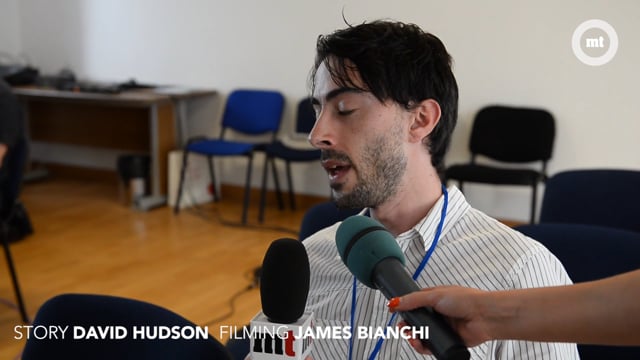[WATCH] PN selects nominees to 'democracy committee', endorses gender equality mechanism
PN Secretary General Clyde Puli said that rather than a quota, the mechanism would be ensuring more balance in parliament without tampering with the country's democratic process


The Nationalist Party will be nominating two individuals to a committee set up by the government last year to formulate proposals on increasing gender equality in parliament.
PN Secretary General Clyde Puli told MaltaToday on Monday that two individuals had in fact been chosen, adding however that they would be announced once the names are officially communicated to the government.
The selected individuals will be announced by PN leader Adrian Delia in due course, Puli said.
The Technical Committee for the Advancement of Representative Democracy was established last June and was initially criticised by the PN, which had argued that the committee did not reflect the makeup up of Malta’s political landscape and that its members were all close to the government and the Labour Party.
Puli noted that the party had already contributed to the public consultation and a dialogue on the proposed measures.
“We are seeing that more than a quota, it is a corrective measure that will be coming in to create balance in parliament, as there should, without tampering with the democratic process,” Puli said.
READ ALSO: Opposition asked to nominate two members to 'democracy committee'
The PN had previously shot down the idea of parliamentary gender quotas, with leader Adrian Delia and PN MEP Roberta Metsola describing it as a ‘smokescreen’, failing to tackle the underlying problems with poor female representation in Malta.
In an official position paper sent to the government in June, the PN said that it agrees in principle with the government’s proposal for a ‘gender corrective mechanism’ to kick in if the underrepresented sex obtains fewer than 40% of the seats.
The government is proposing that this be capped at a maximum of 12 seats, which will be equally divided between the PL and the PN.
“The PN believes that a corrective mechanism by itself isn’t the solution and that measures and initiatives should be introduced to change the culture and strengthen the position of women in Parliament,” the PN’s official position paper reads.
“To do this, we must understand why Maltese women are holding back from contesting elections. This is the real problem and the lack of women in Parliament is only the symptom.
“Political parties must ensure they do their utmost to present the electorate with a variety of quality candidates, including women of value who will benefit society. Electoral history has shown us that when women get elected, their constituents tend to keep on choosing them to represent them,” the PN said.


.jpeg)



.jpg)










.png)





